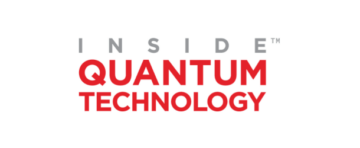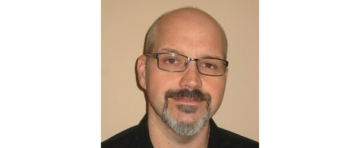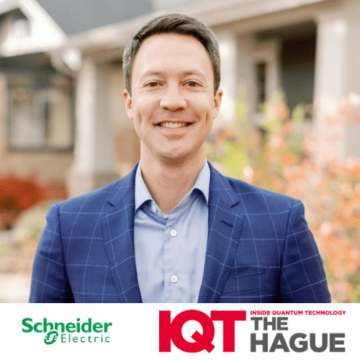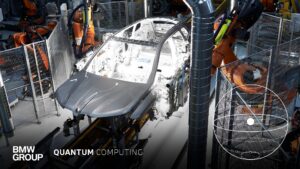
By Kenna Hughes-Castleberry posted 18 Mar 2024
Quantum News Briefs: March 18, 2024:
Japanese Research Consortium Wins Prime Minister’s Award for HPC Platform Using a 64-Qubit Quantum Computer

A Japanese consortium, including prominent institutions and corporations like RIKEN, AIST, NICT, Osaka University, Fujitsu Limited, and NTT, has been awarded the Prime Minister’s Award at the 53rd Japan Industrial Technology Awards. This recognition comes from their collaborative efforts in developing a high-performance computing platform centered around Japan’s second domestically-made 64-qubit superconducting quantum computer. Launched in October 2023, this quantum computer, a product of joint development between Fujitsu and RIKEN, builds on the groundwork laid by the nation’s first 64-qubit superconducting quantum computer introduced in March 2023. The awarded platform, which combines quantum computing with a 40-qubit quantum simulator, exemplifies technological innovation and progression towards the industrial application of quantum technologies. This initiative is celebrated for its originality, advancement, and potential to foster research and development in various sectors by offering access to cutting-edge quantum computing resources on a scalable cloud architecture.
Quantum Leap in Material Science: National University of Singapore Researchers Unveil AI-Powered Atomic Fabrication Technique
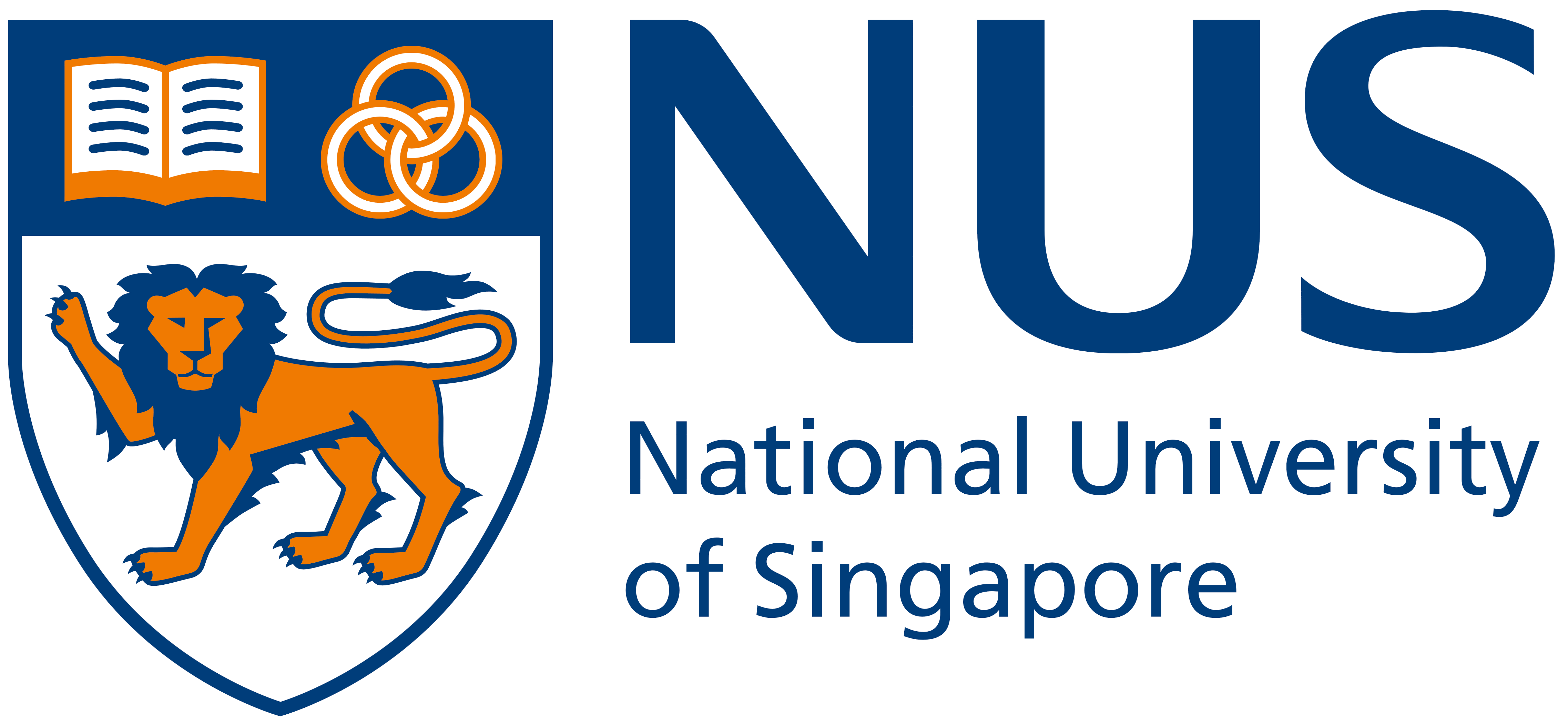
At the National University of Singapore (NUS), researchers have made a novel advancement in the field of quantum materials by developing a method to create carbon-based quantum materials atom by atom. This technique employs scanning probe microscopy in conjunction with advanced deep neural networks, enabling precise manipulation of materials at the sub-angstrom level. Their work focuses on open-shell magnetic nanographenes, a class of carbon-based quantum materials essential for developing high-speed electronic devices and quantum computing. The team introduced the concept of the chemist-intuited atomic robotic probe (CARP), which combines artificial intelligence with probe chemistry knowledge, allowing for the automated and precise fabrication of these materials at the single-molecule level. This AI-driven approach demonstrates the potential for precise control over the properties of quantum materials. It opens up new avenues for the development of quantum computing and high-speed electronics by offering a more sophisticated understanding of material synthesis at the atomic level.
In Other News: APS News article: “Building a Quantum Workforce Doesn’t Just Mean Graduating More Ph.D.s”
At a pivotal gathering in Washington, D.C., named “Narrowing the Quantum Divide,” experts from around the globe emphasized the urgent need to cultivate a diverse quantum workforce to propel the second quantum revolution forward, highlights a recent APS News article. This revolution seeks to harness quantum principles for groundbreaking technologies such as quantum computing, cryptography, and sensing. With the International Year of Quantum Science and Technology on the horizon in 2025, marking the centennial of quantum physics, the spotlight is on expanding the educational pathways into quantum fields. Diverse careers in quantum science can stem from an array of educational backgrounds, not limited to Ph.D. holders, highlighting the importance of incorporating quantum concepts early in education. The event underscored the potential of vocational programs and two-year degrees in equipping students with the hands-on skills needed for the quantum industry. Efforts to integrate quantum education into earlier learning stages and increase public engagement, like World Quantum Day, aim to demystify the field and build a broadly skilled, diverse workforce ready to tackle future challenges with quantum solutions.
In Other News: Forbes Africa article: “Africa’s Quantum: Welcome To The 1960s”
![]()
According to a new Forbes Africa article, quantum security, though not as advanced in Africa as in other parts of the world, is gaining recognition as a crucial aspect of future computation and cybersecurity. With quantum computing in its early stages, reminiscent of the classical computing era of the 1960s, the continent is beginning to address the potential cybersecurity threats posed by the advancement of quantum technologies. The World Economic Forum and the European Policy Centre have highlighted the urgency of preparing for quantum readiness, including the impact on cybersecurity. Experts like Martin Potgieter of Nclose and Professor Bruce Watson of Stellenbosch University note the experimental nature of quantum computers and the significant infrastructure and costs involved in their development. Despite these challenges, the necessity of prioritizing quantum security in Africa is underscored, with a recognition that sectors like finance and healthcare must begin implementing protective protocols and guidelines. The continent’s approach to quantum security is expected to evolve, with an emphasis on the importance of early action in post-quantum cryptography and the design of new security algorithms.
In Other News: Yahoo Finance article: “D-Wave Quantum Inc. (QBTS) Advances While Market Declines: Some Information for Investors”
![]()
According to a Yahoo Finance article, on March 15, 2024, D-Wave Quantum Inc. (QBTS) experienced a positive shift in its stock price, closing at $2.08, which marks a 0.97% increase from the previous trading session. This performance notably surpassed the S&P 500’s decline of 0.65% on the same day. Over the past month, D-Wave Quantum Inc. has seen a 4.04% increase in its shares, outperforming both the Computer and Technology sector’s gain of 2.19% and the S&P 500’s 3.27% increase. The company is anticipated to release its earnings on March 28, 2024, with projections indicating earnings of -$0.10 per share, representing a year-over-year growth of 16.67%, and expected revenue of $4.86 million, marking a 102.29% increase from the prior year. Investors are keenly awaiting these results, especially in light of recent positive adjustments in analyst projections, which often signal optimism regarding the company’s business prospects and are closely tied to short-term share price movements.
- SEO Powered Content & PR Distribution. Get Amplified Today.
- PlatoData.Network Vertical Generative Ai. Empower Yourself. Access Here.
- PlatoAiStream. Web3 Intelligence. Knowledge Amplified. Access Here.
- PlatoESG. Carbon, CleanTech, Energy, Environment, Solar, Waste Management. Access Here.
- PlatoHealth. Biotech and Clinical Trials Intelligence. Access Here.
- Source: https://www.insidequantumtechnology.com/news-archive/quantum-news-briefs-march-18-2024-japanese-research-consortium-wins-prime-ministers-award-for-hpc-platform-using-a-64-qubit-quantum-computer-national-university-of-singapore-researchers-u/
- :has
- :is
- :not
- ][p
- $UP
- 08
- 10
- 102
- 15%
- 16
- 2%
- 2023
- 2024
- 2025
- 28
- 32
- 33
- 4
- 70
- 89
- a
- access
- Action
- address
- adjustments
- advanced
- advancement
- advances
- africa
- AI-powered
- aim
- algorithms
- Allowing
- an
- analyst
- and
- Anticipated
- Application
- approach
- architecture
- ARE
- around
- Array
- artificial
- artificial intelligence
- AS
- aspect
- At
- atom
- Automated
- avenues
- awaiting
- award
- awarded
- awards
- backgrounds
- been
- begin
- Beginning
- between
- both
- broadly
- Bruce
- build
- Building
- builds
- business
- by
- CAN
- Canada
- careers
- categories
- celebrated
- centered
- centre
- CFM
- challenges
- chemistry
- class
- closely
- closing
- Cloud
- collaborative
- combines
- comes
- Commons
- company
- Company’s
- computation
- computer
- computers
- computing
- concept
- concepts
- conjunction
- consortium
- continent
- control
- Corporations
- Costs
- create
- crucial
- cryptography
- Cultivate
- cutting-edge
- Cybersecurity
- D-Wave
- D-Wave Quantum
- D-Wave Systems
- D.C.
- day
- Decline
- Declines
- deep
- deep neural networks
- demonstrates
- demystify
- Design
- Despite
- developing
- Development
- Devices
- diverse
- divide
- Doesn’t
- download
- Earlier
- Early
- Earnings
- Economic
- Economic Forum
- Education
- educational
- efforts
- Electronic
- Electronics
- emphasis
- emphasized
- employs
- enabling
- engagement
- Era
- especially
- essential
- European
- Event
- evolve
- exemplifies
- expanding
- expected
- experienced
- experimental
- experts
- field
- Fields
- File
- finance
- First
- focuses
- For
- Forbes
- Forum
- Forward
- Foster
- from
- Fujitsu
- future
- Gain
- gaining
- gathering
- globe
- groundbreaking
- groundwork
- Growth
- guidelines
- hands-on
- harness
- Have
- healthcare
- High
- high-performance
- Highlighted
- highlighting
- highlights
- holders
- horizon
- hpc
- HTML
- HTTPS
- image
- Impact
- implementing
- importance
- in
- In other
- Inc.
- Including
- incorporating
- Increase
- indicating
- industrial
- industry
- information
- Infrastructure
- Initiative
- Innovation
- inside
- Inside Quantum Technology
- institutions
- integrate
- Intelligence
- International
- into
- introduced
- Investors
- involved
- IT
- ITS
- Japan
- Japan’s
- Japanese
- joint
- jpg
- just
- knowledge
- laid
- launched
- Leap
- learning
- Level
- light
- like
- Limited
- Manipulation
- mar
- March
- Market
- marking
- Martin
- material
- materials
- max-width
- mean
- Media
- method
- Microscopy
- million
- Month
- more
- movements
- must
- Named
- National
- Nations
- Nature
- necessity
- Need
- needed
- networks
- Neural
- neural networks
- New
- news
- notably
- note
- novel
- NTT
- NUS
- october
- of
- offering
- often
- on
- opens
- Optimism
- originality
- Other
- outperforming
- over
- parts
- past
- pathways
- per
- performance
- Physics
- pivotal
- platform
- plato
- Plato Data Intelligence
- PlatoData
- policy
- posed
- positive
- posted
- potential
- precise
- preparing
- previous
- price
- Prime
- principles
- Prior
- prioritizing
- probe
- Product
- Professor
- Programs
- progression
- projections
- prominent
- Propel
- properties
- prospects
- Protective
- protocols
- public
- publishers
- Quantum
- Quantum Computer
- quantum computers
- quantum computing
- quantum education
- quantum materials
- quantum physics
- quantum revolution
- quantum technology
- Readiness
- ready
- recent
- recognition
- regarding
- release
- reminiscent
- representing
- research
- research and development
- researchers
- Resources
- Results
- revenue
- Revolution
- RIKEN
- Robotic
- s
- S&P
- same
- scalable
- scanning
- Science
- Science and Technology
- Second
- Sectors
- security
- Seeks
- seen
- session
- Share
- Shares
- shift
- short-term
- Signal
- significant
- simulator
- Singapore
- skilled
- skills
- Solutions
- some
- sophisticated
- Spotlight
- stages
- Stem
- stock
- Students
- such
- surpassed
- sustainable
- Sustainable Development
- SVG
- synthesis
- Systems
- tackle
- team
- technique
- technological
- Technologies
- Technology
- that
- The
- the world
- their
- These
- this
- though?
- threats
- Tied
- to
- towards
- Trading
- true
- underscored
- understanding
- university
- unveil
- urgency
- urgent
- using
- various
- washington
- Watson
- welcome
- which
- while
- Wins
- with
- Work
- Workforce
- world
- World Economic Forum
- Yahoo
- year
- zephyrnet


